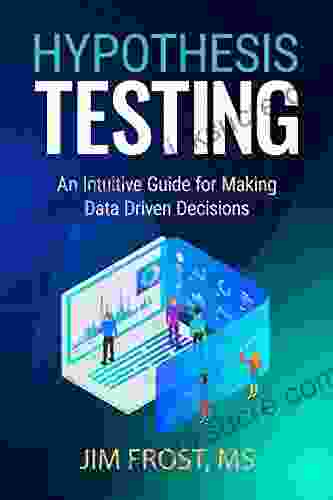Clinician's Guide to Interpersonal and Social Rhythm Therapy (IPSRT): An Evidence-Based Treatment for Bipolar Disorder

What is Interpersonal and Social Rhythm Therapy (IPSRT)?
Interpersonal and Social Rhythm Therapy (IPSRT) is an evidence-based treatment for bipolar disorder that has been shown to be effective in reducing symptoms and preventing relapse. IPSRT is a structured, manualized treatment that focuses on improving interpersonal relationships and social rhythms. Interpersonal relationships are important for people with bipolar disorder because they can provide support and stability during mood episodes. Social rhythms are also important because they can help to regulate mood and prevent relapse.
IPSRT is typically conducted in individual or group therapy sessions. The therapist works with the patient to identify and address problems in interpersonal relationships and social rhythms. The therapist also teaches the patient skills to manage their symptoms and prevent relapse.
4.7 out of 5
| Language | : | English |
| File size | : | 5909 KB |
| Text-to-Speech | : | Enabled |
| Enhanced typesetting | : | Enabled |
| Word Wise | : | Enabled |
| Print length | : | 212 pages |
| Screen Reader | : | Supported |
How does IPSRT work?
IPSRT works by targeting two core features of bipolar disorder: interpersonal problems and social rhythm disturbances. Interpersonal problems are common in people with bipolar disorder and can contribute to mood episodes. Social rhythm disturbances are also common in people with bipolar disorder and can lead to relapse. By improving interpersonal relationships and social rhythms, IPSRT can help to reduce symptoms and prevent relapse.
IPSRT has been shown to be effective in reducing symptoms of bipolar disorder, including depression, mania, and hypomania. IPSRT has also been shown to be effective in preventing relapse. In a study of people with bipolar disorder, IPSRT was found to reduce the risk of relapse by 50%.
Who can benefit from IPSRT?
IPSRT is a safe and effective treatment for bipolar disorder. IPSRT is appropriate for people with bipolar I disorder, bipolar II disorder, and cyclothymic disorder. IPSRT can be used in conjunction with other treatments for bipolar disorder, such as medication and psychotherapy.
How to conduct IPSRT
IPSRT is a structured, manualized treatment that is typically conducted in individual or group therapy sessions. The therapist works with the patient to identify and address problems in interpersonal relationships and social rhythms. The therapist also teaches the patient skills to manage their symptoms and prevent relapse.
The following is a step-by-step guide to conducting IPSRT sessions:
- Assessment. The first step in IPSRT is to assess the patient's interpersonal relationships and social rhythms. The therapist will ask the patient about their relationships with family, friends, and romantic partners. The therapist will also ask the patient about their sleep-wake cycle, eating habits, and exercise routine.
- Goal setting. Once the therapist has assessed the patient's interpersonal relationships and social rhythms, the therapist will work with the patient to set goals for treatment. The goals should be specific, measurable, achievable, relevant, and time-bound.
- Intervention. The therapist will then work with the patient to develop and implement interventions to address the patient's interpersonal problems and social rhythm disturbances. The interventions may include:
- Interpersonal skills training. The therapist will teach the patient skills to improve their communication, conflict resolution, and problem-solving skills.
- Social rhythm therapy. The therapist will help the patient to develop a regular sleep-wake cycle, eating habits, and exercise routine.
- Medication management. The therapist may work with the patient's psychiatrist to manage the patient's medication.
The evidence base for IPSRT
IPSRT is an evidence-based treatment for bipolar disorder that has been shown to be effective in reducing symptoms and preventing relapse. The evidence base for IPSRT includes:
- Randomized controlled trials. Randomized controlled trials are the gold standard for evaluating the effectiveness of treatments. In a randomized controlled trial, participants are randomly assigned to receive the treatment or a control condition. The results of randomized controlled trials have shown that IPSRT is effective in reducing symptoms of bipolar disorder and preventing relapse.
- Meta-analyses. Meta-analyses are studies that combine the results of multiple studies. Meta-analyses have shown that IPSRT is effective in reducing symptoms of bipolar disorder and preventing relapse.
- Long-term follow-up studies. Long-term follow-up studies have shown that the benefits of IPSRT are maintained over time.
IPSRT is an evidence-based treatment for bipolar disorder that has been shown to be effective in reducing symptoms and preventing relapse. IPSRT is a safe and effective treatment that can be used in conjunction with other treatments for bipolar disorder. If you are interested in learning more about IPSRT, please talk to your doctor or mental health professional.
4.7 out of 5
| Language | : | English |
| File size | : | 5909 KB |
| Text-to-Speech | : | Enabled |
| Enhanced typesetting | : | Enabled |
| Word Wise | : | Enabled |
| Print length | : | 212 pages |
| Screen Reader | : | Supported |
Do you want to contribute by writing guest posts on this blog?
Please contact us and send us a resume of previous articles that you have written.
 Fiction
Fiction Non Fiction
Non Fiction Romance
Romance Mystery
Mystery Thriller
Thriller SciFi
SciFi Fantasy
Fantasy Horror
Horror Biography
Biography Selfhelp
Selfhelp Business
Business History
History Classics
Classics Poetry
Poetry Childrens
Childrens Young Adult
Young Adult Educational
Educational Cooking
Cooking Travel
Travel Lifestyle
Lifestyle Spirituality
Spirituality Health
Health Fitness
Fitness Technology
Technology Science
Science Arts
Arts Crafts
Crafts DIY
DIY Gardening
Gardening Petcare
Petcare Lois A Ritter
Lois A Ritter Tea Rozman Clark
Tea Rozman Clark Stewart Shapiro
Stewart Shapiro Jo May
Jo May Scott Meyer
Scott Meyer Kristina Statler
Kristina Statler Diana Winston
Diana Winston Jorge Ramos Mizael
Jorge Ramos Mizael Kent David Kelly
Kent David Kelly Tim Thayne
Tim Thayne Andy Jurinko
Andy Jurinko Dennis Rainey
Dennis Rainey United States Government Us Army
United States Government Us Army Third Edition Kindle Edition
Third Edition Kindle Edition Margaret M Quinlan
Margaret M Quinlan Massimo Florio
Massimo Florio Samir P Desai
Samir P Desai Kevin Hunter
Kevin Hunter Tanya Lee Stone
Tanya Lee Stone G K Derosa
G K Derosa Angel Millar
Angel Millar James M Johnston
James M Johnston Richard Lee Byers
Richard Lee Byers Ben Ehrenreich
Ben Ehrenreich Oliver Burkeman
Oliver Burkeman Mark Kernion
Mark Kernion Chef Maggie Chow
Chef Maggie Chow Lucy Postgate
Lucy Postgate Ken Dryden
Ken Dryden Otto Rahn
Otto Rahn Viviana Altuve
Viviana Altuve Pete Dunne
Pete Dunne Christopher Nyerges
Christopher Nyerges Dwight E Neuenschwander
Dwight E Neuenschwander Tim Hannigan
Tim Hannigan Ed Stafford
Ed Stafford Roger Craig
Roger Craig Tirzah Price
Tirzah Price Richard G Brown
Richard G Brown Shenila Khoja Moolji
Shenila Khoja Moolji Elizabeth Foss
Elizabeth Foss Robyn Wideman
Robyn Wideman Leonard Lueras
Leonard Lueras Jeanne Godfrey
Jeanne Godfrey Devaki Lakshmi
Devaki Lakshmi Patrick Pickens
Patrick Pickens Ariel Henley
Ariel Henley Wynne Foster
Wynne Foster Nicholas D Kristof
Nicholas D Kristof Neveen Musa
Neveen Musa Danil Zburivsky
Danil Zburivsky Kat Anderson
Kat Anderson Eugene P Northrop
Eugene P Northrop Harold S Koplewicz
Harold S Koplewicz Kari Marie Norgaard
Kari Marie Norgaard Robert Lindsay
Robert Lindsay William E Hearn
William E Hearn Dean Beaumont
Dean Beaumont Cory Mortensen
Cory Mortensen Eric Schmitz
Eric Schmitz Jeremy Klaff
Jeremy Klaff William Ayers
William Ayers Stephen Lynch
Stephen Lynch Tim Larkin
Tim Larkin Nikki Ace
Nikki Ace Sandra Steingraber
Sandra Steingraber Angela Leslee
Angela Leslee Sabbithry Persad Mba
Sabbithry Persad Mba Mark Rosenman
Mark Rosenman Rufus Estes
Rufus Estes Chris Chelios
Chris Chelios Chuck Weikert
Chuck Weikert Robert Urban
Robert Urban Ron Douglas
Ron Douglas Tim Macwelch
Tim Macwelch Angela C Wu
Angela C Wu Eli Wilson
Eli Wilson Sam Fury
Sam Fury Judith S Beck
Judith S Beck Kenneth R Ginsburg
Kenneth R Ginsburg Andy Tyson
Andy Tyson Jonah Lehrer
Jonah Lehrer Andy Peloquin
Andy Peloquin Susan Burton
Susan Burton Joyce Yang
Joyce Yang Ruby Lang
Ruby Lang Angelo Chiari
Angelo Chiari Kyle Graves
Kyle Graves Emily Nielson
Emily Nielson Dr Eva Beaulieu
Dr Eva Beaulieu Stephen Rea
Stephen Rea Shane O Mara
Shane O Mara Matt Vincent
Matt Vincent Sandy Tolan
Sandy Tolan Tom Chatfield
Tom Chatfield Gerard Siggins
Gerard Siggins Kate Le Roux
Kate Le Roux Daniel Friedmann
Daniel Friedmann Gillian Price
Gillian Price Jamie Kuykendall
Jamie Kuykendall Christina Reese
Christina Reese Stefanie K Johnson
Stefanie K Johnson Joshua Clark
Joshua Clark Jeffrey Bernstein
Jeffrey Bernstein Michael Anthony
Michael Anthony Erich Fromm
Erich Fromm David C Keehn
David C Keehn Mark J Musser
Mark J Musser Andy Dowsett
Andy Dowsett T L Payne
T L Payne Robin Benway
Robin Benway Laura Hillman
Laura Hillman Rebecca P Cohen
Rebecca P Cohen John Sonmez
John Sonmez Jodi Shabazz
Jodi Shabazz Robyn Harding
Robyn Harding Mark Shepherd
Mark Shepherd Deborah Wall
Deborah Wall Ryan Beck
Ryan Beck Angelo Tropea
Angelo Tropea Ellen J Langer
Ellen J Langer Robert Kirk
Robert Kirk Humberto G Garcia
Humberto G Garcia Derek M Steinbacher
Derek M Steinbacher Emma Dalton
Emma Dalton Hajime Isayama
Hajime Isayama Rebecca Solnit
Rebecca Solnit Samuel B Green
Samuel B Green Stephen Grossberg
Stephen Grossberg Johnson Egonmwan
Johnson Egonmwan David Graeber
David Graeber Richard L Sites
Richard L Sites Emiko Jean
Emiko Jean Madison Lee
Madison Lee Gary B Meisner
Gary B Meisner Dave Duncan
Dave Duncan Christian Heath
Christian Heath Janet Menzies
Janet Menzies Tim O Connor
Tim O Connor Serena B Miller
Serena B Miller Ashley Rickards
Ashley Rickards Miranda Green
Miranda Green Nick Bradley
Nick Bradley Kevin Thomas
Kevin Thomas Bob Gordon
Bob Gordon Louis Martin
Louis Martin Mitch Horowitz
Mitch Horowitz Judith Hoare
Judith Hoare Douglas Henderson Jr
Douglas Henderson Jr Capn Fatty Goodlander
Capn Fatty Goodlander Florian Freistetter
Florian Freistetter Rebecca Serle
Rebecca Serle Rachel Connelly
Rachel Connelly Daddilife Books
Daddilife Books Caryl Say
Caryl Say Donald N Yates
Donald N Yates R E Burrillo
R E Burrillo John Geiger
John Geiger Margaret Jordan Halter
Margaret Jordan Halter Elizabeth Kaledin
Elizabeth Kaledin Jenna Blough
Jenna Blough J D Swanson
J D Swanson Natalie Rhodes
Natalie Rhodes Dan Heath
Dan Heath Tristan Higbee
Tristan Higbee Robert E Stake
Robert E Stake Richard Bate
Richard Bate Fredrik Backman
Fredrik Backman Mirabai Starr
Mirabai Starr Ruth Benedict
Ruth Benedict Teresa Parker
Teresa Parker Rebecca Eanes
Rebecca Eanes Angelina J Steffort
Angelina J Steffort Cate Tiernan
Cate Tiernan Ron Jeffries
Ron Jeffries Elizabeth Hunter
Elizabeth Hunter Joy Williams
Joy Williams Beth A Leonard
Beth A Leonard Peter Townsend
Peter Townsend Israelin Shockness
Israelin Shockness Tania N Shah
Tania N Shah Bill Schneider
Bill Schneider Andy Mitchell
Andy Mitchell Angeline Boulley
Angeline Boulley Keith Elliot Greenberg
Keith Elliot Greenberg Cynthia Nims
Cynthia Nims Peter Finch
Peter Finch Sir Edmund Hillary
Sir Edmund Hillary Jerry Toner
Jerry Toner Steve Hindman
Steve Hindman Nicole Smith
Nicole Smith Connie Schultz
Connie Schultz T R Fehrenbach
T R Fehrenbach Andy Crowe
Andy Crowe Tovar Cerulli
Tovar Cerulli Tom Allen
Tom Allen Dave Gray
Dave Gray Baby Professor
Baby Professor Rod Powers
Rod Powers Ben Campbell
Ben Campbell Barak Ariel
Barak Ariel Jennifer Bohnet
Jennifer Bohnet Howard Davis
Howard Davis Mary Pipher
Mary Pipher Scott Alan Johnston
Scott Alan Johnston Jim Posewitz
Jim Posewitz Jim Prime
Jim Prime Kelly Corrigan
Kelly Corrigan Mandee Heller Adler
Mandee Heller Adler Jay Matthews
Jay Matthews Liv Ryan
Liv Ryan Lidia Bastianich
Lidia Bastianich Nicholas Epley
Nicholas Epley Jon Ronson
Jon Ronson Jeff Fleischer
Jeff Fleischer Murtaza Haider
Murtaza Haider Bob Swope
Bob Swope Jessica Jung
Jessica Jung Jason Hogan
Jason Hogan Greg Prato
Greg Prato George Noory
George Noory Dave Smith
Dave Smith L S Boos
L S Boos Andy Schell
Andy Schell Kim Dragoner
Kim Dragoner Howell Raines
Howell Raines Matthew D Dewar
Matthew D Dewar Stephen Cheney
Stephen Cheney Bradley Charbonneau
Bradley Charbonneau Stephanie Land
Stephanie Land Patrick M Lencioni
Patrick M Lencioni Joe Peta
Joe Peta John Samuel Barnett
John Samuel Barnett Michael V Uschan
Michael V Uschan Andy Farrell
Andy Farrell Andrea Lankford
Andrea Lankford Peter Gibson
Peter Gibson Christian Wiggins
Christian Wiggins Phil Burt
Phil Burt William D Lopez
William D Lopez Michael Driscoll
Michael Driscoll Shalabh Aggarwal
Shalabh Aggarwal Warren St John
Warren St John Manik Joshi
Manik Joshi Kristen Jervis Cacka
Kristen Jervis Cacka Keylee C Hargis
Keylee C Hargis Tovah Feldshuh
Tovah Feldshuh Mark Wells
Mark Wells David Goodman
David Goodman Mike Chambers
Mike Chambers Rafael Gordillo Naranjo
Rafael Gordillo Naranjo Joe Berardi
Joe Berardi Kathy Freston
Kathy Freston Judea Pearl
Judea Pearl Charney Herst
Charney Herst Bernd Heinrich
Bernd Heinrich Ingrid S Clay
Ingrid S Clay David Kinney
David Kinney Shreya Ramachandran
Shreya Ramachandran Latonya J Trotter
Latonya J Trotter Kathryn Miles
Kathryn Miles Tina Nelson
Tina Nelson Paul Cobley
Paul Cobley Ray Walker
Ray Walker Walter Beede
Walter Beede Jules Brown
Jules Brown Gregory J Davenport
Gregory J Davenport Angela Stancar Johnson
Angela Stancar Johnson Andy Puddicombe
Andy Puddicombe Christopher O Kennon
Christopher O Kennon Ryan D Agostino
Ryan D Agostino Joseph Mazur
Joseph Mazur Karl E Peace
Karl E Peace Karen Elliott House
Karen Elliott House Kevin J Gaston
Kevin J Gaston Robyn Ryle
Robyn Ryle Patrick Ejeke
Patrick Ejeke Mark Remy
Mark Remy Emily Souder
Emily Souder Ellen Frank
Ellen Frank Dawn Griffiths
Dawn Griffiths Ben Bleiweiss
Ben Bleiweiss Chip Heath
Chip Heath Hourly History
Hourly History Troy A Hill
Troy A Hill Carlos Acevedo
Carlos Acevedo Bradley T Erford
Bradley T Erford Wendy Rosenoff
Wendy Rosenoff Bob Clouser
Bob Clouser Dan Ariely
Dan Ariely Mtg Editorial Board
Mtg Editorial Board Ashley P Martin
Ashley P Martin Arlin Smith
Arlin Smith David Herres
David Herres Ted Sandling
Ted Sandling John C Maxwell
John C Maxwell Wayne Mcghie
Wayne Mcghie Marie Myung Ok Lee
Marie Myung Ok Lee Lutz Hanseroth
Lutz Hanseroth Jeffrey T Richelson
Jeffrey T Richelson W Todd Woodard
W Todd Woodard Adam Skolnick
Adam Skolnick Mark W Steege
Mark W Steege Jeffrey Thurston
Jeffrey Thurston Harry Fairhead
Harry Fairhead Belinda Norton
Belinda Norton Carol Ann Gillespie
Carol Ann Gillespie Jenny Smith
Jenny Smith Katrina Cope
Katrina Cope Rashaun Johnson
Rashaun Johnson Mometrix
Mometrix Avinash Navlani
Avinash Navlani Joel J Lerner
Joel J Lerner Ryan Bow
Ryan Bow Mercedes Pollmeier
Mercedes Pollmeier Alessio Mangoni
Alessio Mangoni Tom Dymond
Tom Dymond Warren Sande
Warren Sande Mark Synnott
Mark Synnott George Johnson
George Johnson Neil Hawkesford
Neil Hawkesford Lawrence Goldstone
Lawrence Goldstone Thomas Gilovich
Thomas Gilovich Marie Brennan
Marie Brennan Eliot Schrefer
Eliot Schrefer Marilyn Burgos
Marilyn Burgos Schoolhouse Heaven
Schoolhouse Heaven Stacy Mccullough
Stacy Mccullough Jeffrey Lee
Jeffrey Lee Alberta Hawse
Alberta Hawse Michele Borba
Michele Borba Diana Nyad
Diana Nyad Christina Hillsberg
Christina Hillsberg Rawdon Wyatt
Rawdon Wyatt Bret A Moore
Bret A Moore George Megre
George Megre Rick Vaive
Rick Vaive Linda Sivertsen
Linda Sivertsen Sylvester Nemes
Sylvester Nemes Lynn Lyons
Lynn Lyons Sharon Strand Ellison
Sharon Strand Ellison Cap N Fatty Goodlander
Cap N Fatty Goodlander D M Davis
D M Davis S L Macgregor Mathers
S L Macgregor Mathers Marc Charles
Marc Charles Muako Maepa
Muako Maepa Richard A Muller
Richard A Muller Karen Sternheimer
Karen Sternheimer James Quinn
James Quinn Cheryl Alkon
Cheryl Alkon Robin Yocum
Robin Yocum M J Fievre
M J Fievre Charlotte Klaar Phd
Charlotte Klaar Phd Milton Roth
Milton Roth Joan Jacobs Brumberg
Joan Jacobs Brumberg Keith Crowley
Keith Crowley Karl Beecher
Karl Beecher Kathy Hoopmann
Kathy Hoopmann Leanne Ely
Leanne Ely Donna Mott
Donna Mott Chris Santella
Chris Santella Forrest Maready
Forrest Maready Martin Volken
Martin Volken Tigran Bagdasaryan
Tigran Bagdasaryan Rodney Paul
Rodney Paul William Bryant Logan
William Bryant Logan Rebecca Boggs Roberts
Rebecca Boggs Roberts Sam Bleakley
Sam Bleakley Petros Efthymiou
Petros Efthymiou Joseph Phillips
Joseph Phillips Tara Sim
Tara Sim Robert Zubek
Robert Zubek Jordan Summers
Jordan Summers Seth Lloyd
Seth Lloyd Siena Cherson Siegel
Siena Cherson Siegel John B Nici
John B Nici Barry Pickthall
Barry Pickthall Jodi Picoult
Jodi Picoult Frederick Aardema
Frederick Aardema Roland A Boucher
Roland A Boucher Afra J Zomorodian
Afra J Zomorodian Madeleine Roux
Madeleine Roux Lee Cronk
Lee Cronk Carlo Rovelli
Carlo Rovelli Johnny Molloy
Johnny Molloy Scott Turner
Scott Turner Donald R Prothero
Donald R Prothero Mark Lester
Mark Lester Rodney Castleden
Rodney Castleden Lynn Palm
Lynn Palm Jim Saccomano
Jim Saccomano Dhonielle Clayton
Dhonielle Clayton Brian Cain
Brian Cain Raynor Winn
Raynor Winn Violet White
Violet White Angela Smith
Angela Smith Donna Helen Crisp Jd Msn Rn Pmhcns Bc
Donna Helen Crisp Jd Msn Rn Pmhcns Bc Richard Hibshman
Richard Hibshman Jay Griffiths
Jay Griffiths Catherine Mccord
Catherine Mccord Jessica Wolstenholm
Jessica Wolstenholm Yuu Tanaka
Yuu Tanaka Nathaniel Rich
Nathaniel Rich David E Jones
David E Jones Rosie Daley
Rosie Daley Scott Stillman
Scott Stillman Robert Dudley
Robert Dudley Caspar Melville
Caspar Melville Nicholas Jubber
Nicholas Jubber Rob Willson
Rob Willson Jane M Healy
Jane M Healy Kristen S Kurland
Kristen S Kurland Aaron Wilson
Aaron Wilson Lisa Marie Mercer
Lisa Marie Mercer Lindsay Ford
Lindsay Ford Robin Ray Green
Robin Ray Green Pete Sampras
Pete Sampras Yvonne Choquet Bruhat
Yvonne Choquet Bruhat Thomas Golf
Thomas Golf Meg Long
Meg Long Miles Olson
Miles Olson Kim Foley Mackinnon
Kim Foley Mackinnon Elly Molina
Elly Molina Richard Lemaster
Richard Lemaster Angel Burns
Angel Burns Rachel Hutt Phd
Rachel Hutt Phd Frank Deford
Frank Deford Angelo Lowery
Angelo Lowery Colby Coombs
Colby Coombs K Moriyasu
K Moriyasu Angela Thayer
Angela Thayer Stefan Hunziker
Stefan Hunziker George E Hein
George E Hein Stephen Jungmann
Stephen Jungmann Laura Bogen
Laura Bogen Margaret Visser
Margaret Visser Germano Dalcielo
Germano Dalcielo Jessica Nordell
Jessica Nordell Jeff Mach
Jeff Mach Lisa Preston
Lisa Preston Jonathan Gottschall
Jonathan Gottschall Chanel Craft Tanner
Chanel Craft Tanner Stuart Lawrence
Stuart Lawrence Jenna Helwig
Jenna Helwig Lin Wellford
Lin Wellford Anna Rashbrook
Anna Rashbrook Tj Faultz
Tj Faultz Rachel Kowert
Rachel Kowert Thais Nye Derich
Thais Nye Derich Kim West
Kim West Michael Tomasello
Michael Tomasello Julia Reed
Julia Reed Rebecca Hemmings
Rebecca Hemmings Alex Wolf
Alex Wolf Erin Moulton
Erin Moulton Irene Gut Opdyke
Irene Gut Opdyke Guy Evans
Guy Evans Tiara Mcclure
Tiara Mcclure Robb Manning
Robb Manning Mark Verstegen
Mark Verstegen Angela Eckhoff
Angela Eckhoff
Light bulbAdvertise smarter! Our strategic ad space ensures maximum exposure. Reserve your spot today!

 Orson Scott CardAmerica's Most Wanted Recipes At The Grill: A Culinary Masterclass for...
Orson Scott CardAmerica's Most Wanted Recipes At The Grill: A Culinary Masterclass for... Gage HayesFollow ·16.9k
Gage HayesFollow ·16.9k Gene SimmonsFollow ·6.4k
Gene SimmonsFollow ·6.4k Banana YoshimotoFollow ·10.1k
Banana YoshimotoFollow ·10.1k Spencer PowellFollow ·17.8k
Spencer PowellFollow ·17.8k Eric HayesFollow ·14.3k
Eric HayesFollow ·14.3k Jorge AmadoFollow ·6.3k
Jorge AmadoFollow ·6.3k Pete BlairFollow ·14.6k
Pete BlairFollow ·14.6k Vernon BlairFollow ·13.8k
Vernon BlairFollow ·13.8k

 Devon Mitchell
Devon MitchellDelve into the Comprehensive World of Cartridges: A...
In the realm of firearms, cartridges stand...

 Joseph Conrad
Joseph ConradTales From The San Francisco 49ers Sideline: A Look...
The San Francisco 49ers are one of the most...

 Ervin Bell
Ervin BellArcGIS Desktop 10: A Comprehensive GIS Tutorial for...
Geographic information...

 Reed Mitchell
Reed MitchellPhysiology Pretest Self Assessment And Review 14th...
Accurately gauge your physiology knowledge and...

 Devin Ross
Devin RossLost At Sea: The Unbelievable True Story of the Jon...
In 2009, journalist Jon Ronson set out to...

 Shane Blair
Shane BlairModes of Thinking for Qualitative Data Analysis
Qualitative data analysis is a complex...
4.7 out of 5
| Language | : | English |
| File size | : | 5909 KB |
| Text-to-Speech | : | Enabled |
| Enhanced typesetting | : | Enabled |
| Word Wise | : | Enabled |
| Print length | : | 212 pages |
| Screen Reader | : | Supported |










